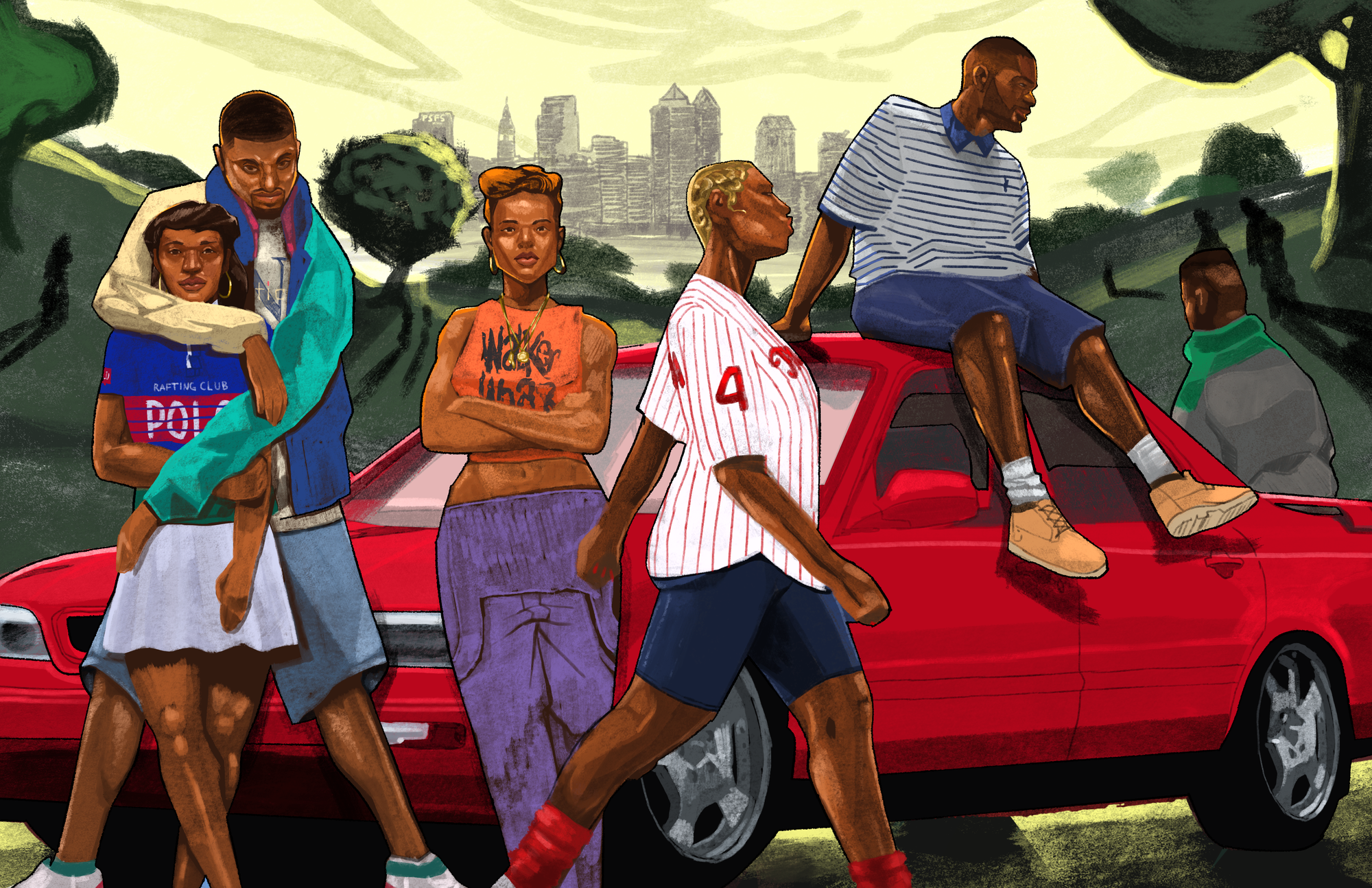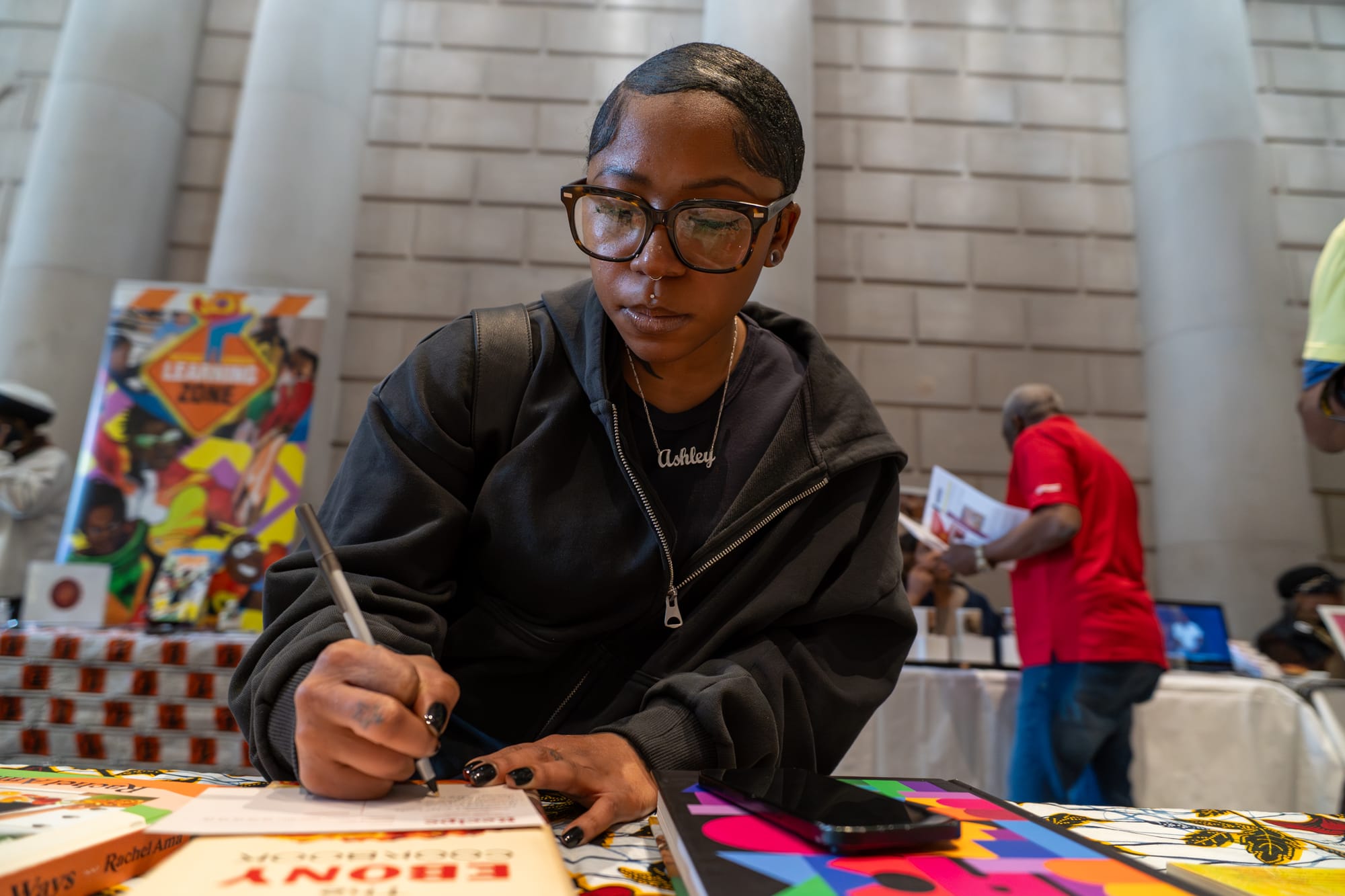Black Motherhood Is a Form of Survival, Resistance, and Joy
Black Maternal Health Week comes every year in April, and this year was no different.
Black Maternal Health Week comes every year in April, and this year was no different. Social media campaigns across Instagram, Facebook, and TikTok highlighted the disparities Black mothers face in the quality of care they receive during pregnancy, childbirth, and postpartum. From prominent national nonprofit organizations to the smallest grassroots collectives, everyone was sharing facts about Black motherhood and what it will take to create a softer, safer path for Black women on this journey.
While audience sizes varied greatly, the messaging was the same. Black women are still disproportionately impacted when it comes to having support during the most delicate phase of their lives, the transition into motherhood. Most mothers will tell you that while motherhood is their greatest accomplishment, it is also the most challenging task they have ever taken on. Mothers do a thankless job, and some are doing it against all odds.
When we discuss motherhood, Black women often appear at the forefront of our minds. Since the founding of the United States, Black women have been forced into roles as nurturers, caretakers, and child rearers. While that began as forced labor, it has left a long-lasting impact on how people view Black women today. Black women were so skilled at caring for children that they raised other people’s children while still providing enough love, support, and guidance to raise their own, even when their own children were legally considered someone else’s property. Black women are the only people in this country who were seen not as bringers of life, but as producers of property. To become a Black mother is to declare, “Even though this society tells me the child I carried is not mine, I will prove them wrong.”
In a system that tells you that you are nothing, becoming a Black mother offers the chance to not only have something, but to care for and love someone, in a world that insists you will never have anything at all. Perhaps because of this, the desire to have children and become a mother has never been something Black women or girls feared. It may be because, innately, Black mothers know they carry the power of generational and ancestral knowledge. That wisdom will guide them through the journey of becoming and being a mother.
Black motherhood is many things, but it is and always will be relentless.
Black motherhood is Cardi B, including all of Offset’s children in their professional family photos to keep her blended family connected and in sync. It is the mother in North Philly taking her baby to the Strawberry Mansion Health Center for a checkup. It is Beyoncé displaying three generations of Knowles women, bringing Mama Tina and her daughters on stage to experience life alongside her. It is the mom in the Northeast coordinating rides to and from magnet schools each day.
Black motherhood is the unique and complex experience of raising children shaped by thousands of years of culture and hundreds of years of history, resistance, and resilience. In a world that routinely devalues the existence of Black women and girls, Black motherhood becomes an act of rebellion. It is a bold resistance against a society that insists we should not continue. When a Black woman or girl decides to continue her lineage, it is an intentional decision to bring forth life that will be loved, cared for, and nurtured. Black motherhood is showing up when you're exhausted. It is nurturing when resources are scarce. It is prioritizing joy while teaching your children how to survive in a country that doesn’t always want them to thrive.
In Philadelphia, motherhood often means being the backbone of families and entire communities. Growing up in West Philly, there was always an auntie on the block who watched kids when their parents had to work or study. There was always a grandmother sitting on the stoop while children played, a group of women organizing the yearly block party, and church mothers serving food after service. It is the women who run after-school programs at the neighborhood school. Black motherhood is so all-encompassing that once you become a mother, you are never just a mother to your child. You become a mother to everyone around you.
Black motherhood is choosing love when systems are stacked against you.
But Black motherhood is also joy, found in the countless moments where time and energy are spent raising someone who becomes an extension of you. Black motherhood is a commitment to the idea that we, as Black Americans, will not be stopped. We will continue. We will flourish. We will grow. We will prosper. They may try, with all their might, to keep us down. But if I can birth, raise, and teach a child what love is, then what exactly is hate? Black motherhood is a deliberate and powerful choice to keep showing up in our homes, in our communities, and in society. It means raising healthy, safe, joyful, and capable children. In short, Black motherhood is a form of survival, resistance, and joy all at once.




